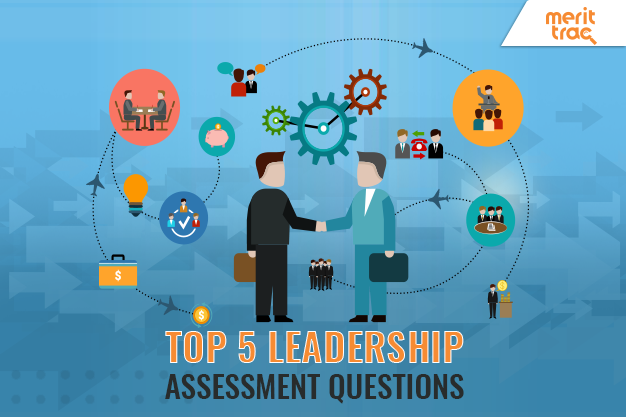
Top 5 Leadership Assessment Questions
Date: 01/02/2018 | Posted by: MeritTrac | Category: Corporate , Leadership Assessment
According to Morgan Stanley, India is on track to becoming the youngest country in the world by 2020, with a median age of 29. This means more millennials will be stepping into leadership roles in the near future. However, only
36% of current millennial leaders felt ready when entering the role. A sound assessment approach that helps determine a candidate’s leadership potential is therefore critical to ensuring the success of an organisation.
Here are five questions you should be asking candidates when hiring for leadership positions:
- If need be, how would you reorganise the organisation? Corporate reorganizations are risky, involving significant time, energy and resources. For instance, according to
McKinsey Research, only 16% of merger reorganizations fully deliver on their objectives. Effective leaders are those that can enable their teams to make better and faster decisions during reorganization, while increasing the returns from well-executed decisions. Lawrence Gosden, the Wastewater Director of
Thames Water, United Kingdom’s largest water utility, engaged 60 staff members from a cross-section of the company to shape the organisational design for the restructured company.
- Have you been a member of a successful team and what role did you play in the team? Ask potential candidates about their role in their team’s success. For example, if the team had problems coming up with a solution, a good leader would bring to the table the right industry expertise and communication abilities to champion a potential solution and get tasks done. He/she will not only quickly build a repository of new ideas but also inspire team members to bring their A-game to all initiatives.
- How have you handled failure in your career? A great leader sees failure as a strategic resource and a stepping-stone to success. They also have the ability to recognise failure early on and react quickly to minimise the impact of failure. Good leaders are also unafraid to accept responsibility for failure and use their goodwill to set things right. Successful business leaders like
Amazon’s Jeff Bezos and Vogue’s Anna Wintour are great examples of leaders who have used risk and failure to get ahead in world of business. Anna Wintour overcame several odds to become the editor-in-chief of Vogue after being fired. Jeff Bezos took it a step further and chose several professionals who experienced failure to be part of his team at Amazon. The idea was to take advantage of the invaluable lessons they bring.
- What is the one thing you would like to change in the organisation? For a leader, any change initiative means breathing new life into the company. A true leader revitalises working and the thinking of employees to meet the needs of globalisation, while offering optimal simplification to customers. This not only helps enhance customer satisfaction but rationalises the cost of business. A classic and well-known example of this is Apple’s Steve Jobs who helped bring Apple back from severe losses with the ‘Think Different’ campaign in 1997. He was unafraid to change Apple’s products and make them different from others.
- Do you have the ability to see the future in ways others can’t and adapt to evolving changes? As technology and the marketplace evolves at warp speed, prescient leaders will display agile learning traits and characteristics. Agile leaders are open and encourage innovation and inclusiveness to drive competitive advantage through enhanced business agility. Why is this important? According to
Forbes Insights, 92% of surveyed executives felt that agility was key to their company’s long term success.
Robert McDonald, former CEO of Procter & Gamble, exemplifies agile leadership. Having spent over two decades on overseas postings, he pushed himself out of his comfort zone and learnt several foreign languages.
Gen Y is set to become the largest generation in the US workforce and millennials are predicted to account for over half of the global workforce by
2020, including India. Given this emerging scenario, tomorrow’s leaders will be those that can learn continuously, think strategically and act decisively amidst increasing globalization and technological disruption.
Sources:
- morganstanley.com
- deloitte.com
- hbr.org
- mckinsey.com
- telegraph.co.uk
- forbes.com
- mindtools.com
- pewresearch.org
- pwc.com












 Sales Hotline: USA: +1 646 916 0939 / Others: +91 80619 14700
Sales Hotline: USA: +1 646 916 0939 / Others: +91 80619 14700


